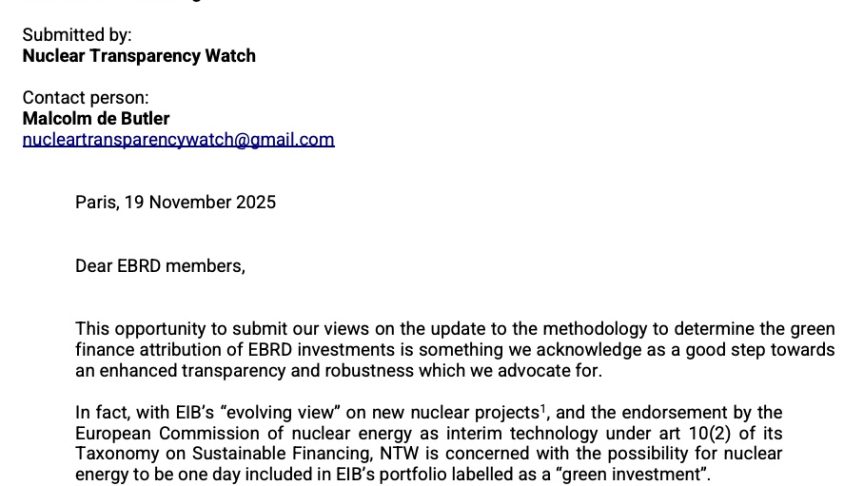The European Bank for Reconstruction and Development (EBRD) has invited the public to give its views on its policies and strategies. In fact, the new proposed institutional and operational policies as well as strategies for the countries of operations and sectors in which they invest are made available for public comment (for more information click here).
Based on its GET 2021-25, a systemic approach to supporting the transition to resilient, low-carbon economies, the EBRD has developed a methodology for green finance attribution to set out how the Bank determines whether or not EBRD finance should be classified as green, how to estimate the outcomes of green finance, and how to define plans for monitoring the delivery of those outcomes. This methodology is updating the previous “Technical Guide – Implementing the Green Economy Transition” and its annexes since August 2025 and it is now currently available for public comment.
In this context, supporting this effort of transparency and collaboration from EBRD in refining their methodology, NTW wanted to provide its comments and feedback on this updated methodology specifically in relation to nuclear energy to participate to strengthening the robustness and effectiveness of their green finance commitments.
Therefore, you will find here NTW’ submission on EBRD green finance attribution underlining 4 important reasons advocating against the possibility to consider the nuclear energy as sustainable or “green”:
1 – Radioactive waste and next generation
2 – Taxonomy and Do No Significant Harm (DNSH) principle
3 – Transparency in the cost of nuclear power
4 – Nuclear energy and climate change
